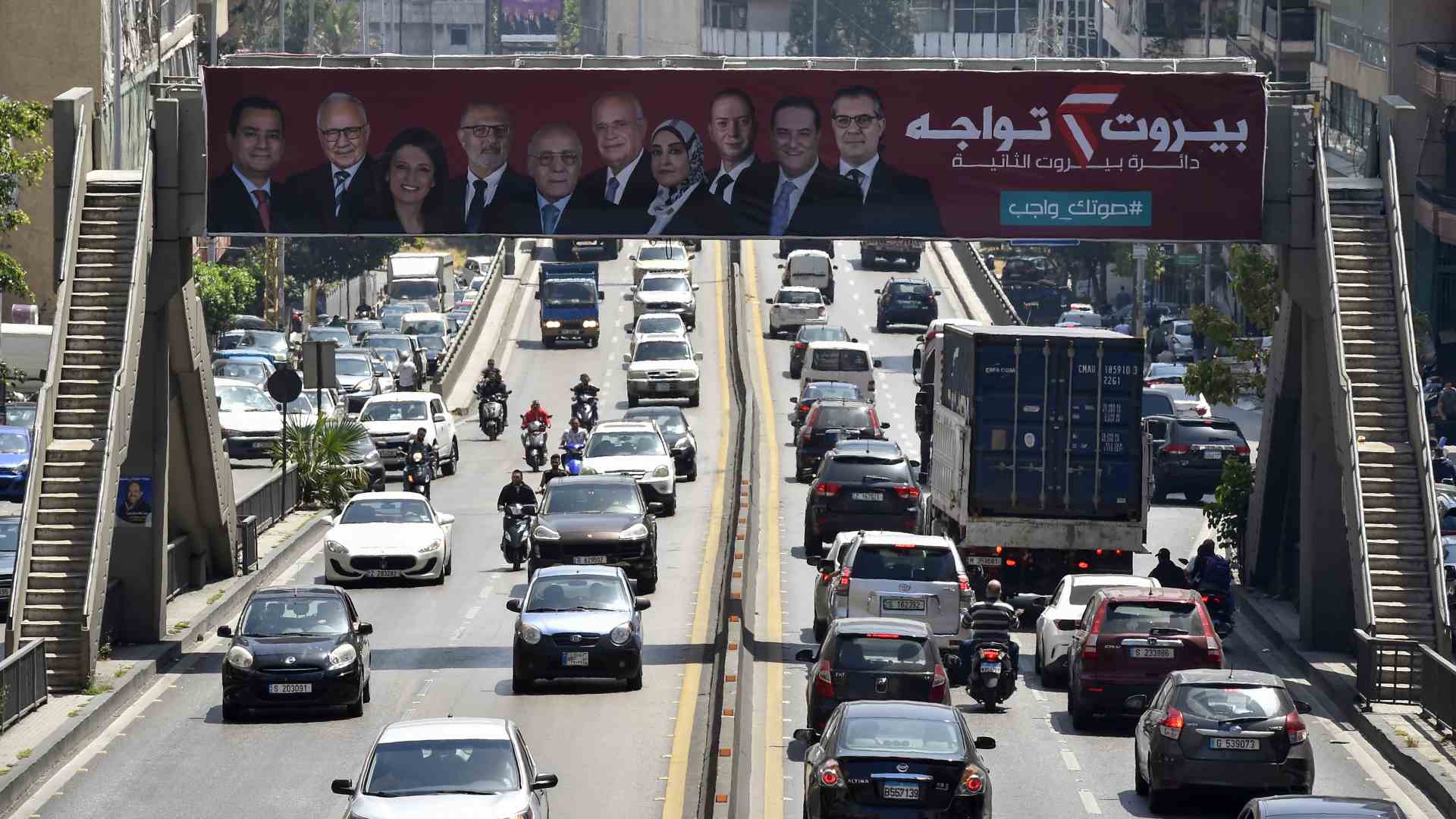Status: 05/15/2022 03:51 a.m
There is little hope of change in Lebanon’s parliamentary elections: the system dictates the composition, and members of the opposition take each other’s votes away. A few die-hards are betting on the outsider chance.
In a larger café on the promenade in Beirut, there is a spirit of optimism. Samah Hawlani and Mahmoud Faqih are campaigning in a crowd of around 100 people. Faqih diligently distributes flyers with his election program, Halwani enthusiastically represents her convictions in front of visitors. The two are running for the Lebanese Parliament for the first time. You are running for the opposition party Beirut Al-Tagheer.
Like tens of thousands, Faqih and Halwani have repeatedly demonstrated on the streets against the government in recent years. Now they are standing for election: “We want to be in parliament, fight corruption, get back the looted money and get Lebanon out of its economic crisis,” explains Faqih energetically.
Parliamentary elections in Lebanon during a severe economic crisis
Ramin Sina, ARD Cairo currently Beirut, daily topics 10:15 p.m., May 15, 2022
state on the verge of collapse
Your country is in the deepest economic crisis in its history. The Lebanese lira has lost 94 percent of its value, inflation has reached record levels, and staple food prices have risen by as much as 600 percent. According to the United Nations, three out of four Lebanese now live in poverty, and more than one and a half of the approximately seven million inhabitants are dependent on food packages from the UN World Food Program.
The state itself is also on the brink of financial collapse. Now, once again, billions in loans from the International Monetary Fund (IMF) are to avert national bankruptcy. But the international community has become more skeptical about Lebanon, and the IMF is calling for numerous reforms before the newly negotiated three billion US dollars are to flow. Too often in the past, Lebanese politicians have promised reforms but failed to implement them.
Instead, hundreds have probably enriched themselves over the years. Many of the leading politicians are millionaires, the current Prime Minister Najib Mikati is a billionaire. He is in office for the third time and has announced his retirement as soon as a new government is formed. Experience has shown that this can take a long time in Lebanon: the last time it took 13 months to form a government.
Seats for each denomination
The established parties will probably decide the election victory among themselves again: They can afford expensive election campaigns and count on loyal supporters. The large Lebanese parties are closely linked to the faith communities. Christians, Sunnis, Shiites, and minorities such as Druze have guaranteed permanent seats in parliament in proportion to their share of the population.
The most important positions are also fixed by denomination: the president is always Maronite Christian, the prime minister is always Sunni and the speaker of parliament is always Shia. A quota system that keeps flushing the same politicians into the same offices. The 84-year-old Nabih Berri from the Shia Amal movement has been the speaker of parliament for 30 years.
There is great hope for change
Which party has the best chance of winning the elections seems completely open. Following the political resignation of ex-Prime Minister Saad Hariri, the Sunnis lack a clear leader. The camp around the Shiite Hezbollah has to worry about becoming the strongest force again, its government alliance with the Maronite-Christian FPM party of President Michel Aoun is in jeopardy. The FPM is threatened with losing votes to the Maronite-Christian Lebanese Forces.
The opposition around Mahmoud Faqih and Samah Hawlani only has the slightest chance of being outsiders. Numerous opposition parties are running – but therein lies the problem: they will probably take each other’s votes away, and they could not agree on a clear opposition candidate.
Hawlani believes that snagging a few of the 128 seats in parliament would be a success. She herself is a Sunni. She doesn’t like the fact that denomination plays such a big role in the Lebanese electoral system: “We are all Lebanese. Abolishing the quota would be a real change.”
The hope for change in the country before the election is high. The chances that something will really change in Lebanese politics, but rather small.

